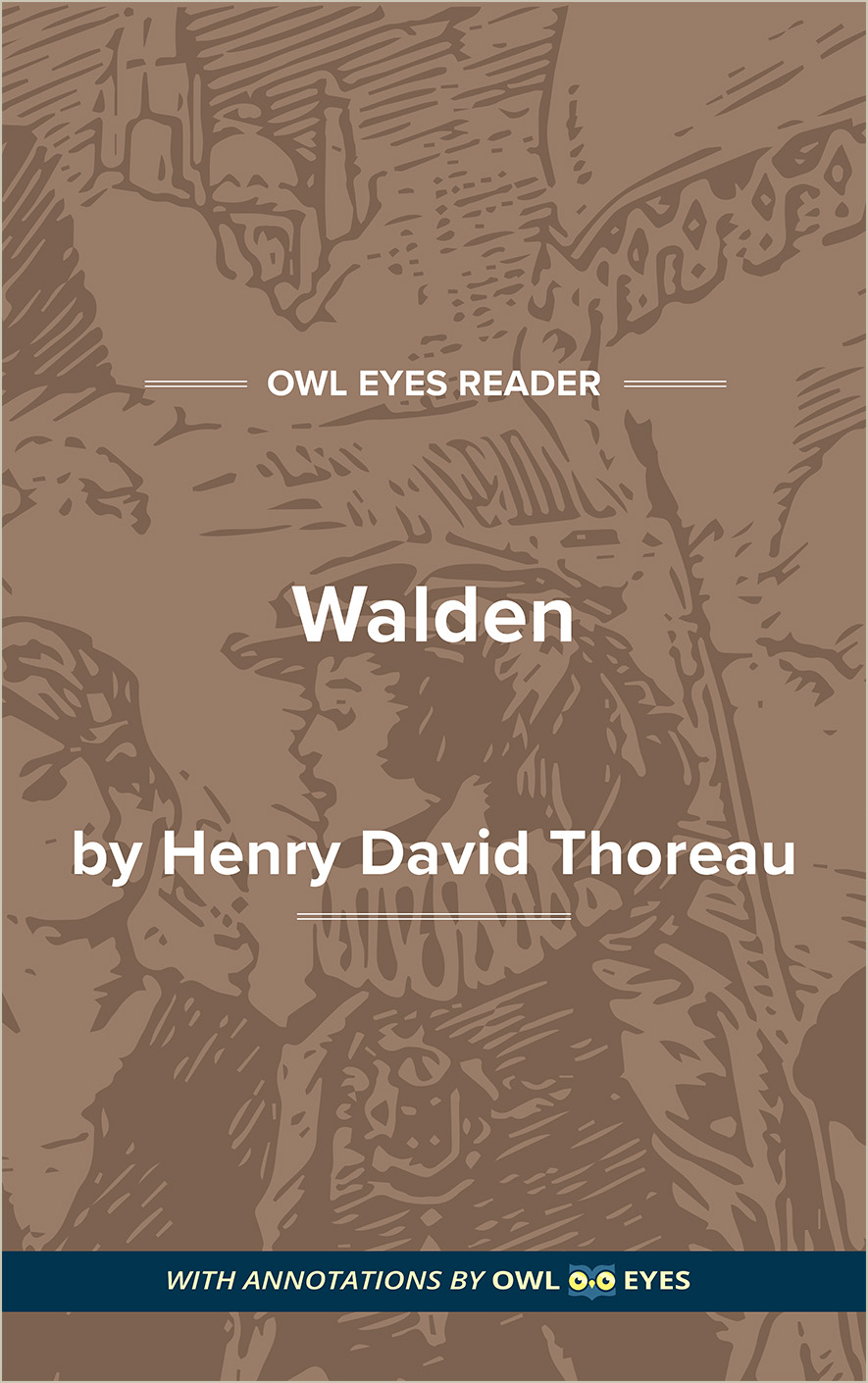Analysis Pages
Thesis in Walden
Thesis Examples in Walden:
Economy
🔒" be an azad, or free..." See in text (Economy)
"be an azad, or free man, like the cypress..." See in text (Economy)
"I would not subtract anything from the praise that is due to philanthropy, but merely demand justice for all who by their lives and works are a blessing to mankind..." See in text (Economy)
"If I were to preach at all in this strain, I should say rather, Set about being good..." See in text (Economy)
"In short, I am convinced, both by faith and experience, that to maintain one's self on this earth is not a hardship but a pastime, if we will live simply and wisely..." See in text (Economy)
"I found that, by working about six weeks in a year, I could meet all the expenses of living..." See in text (Economy)
"this being very nearly the means with which I started, and the measure of expenses to be incurred..." See in text (Economy)
"Who knows but if men constructed their dwellings with their own hands, and provided food for themselves and families simply and honestly enough, the poetic faculty would be universally developed, as birds universally sing when they are so engaged?..." See in text (Economy)
"Shall we always study to obtain more of these things, and not sometimes to be content with less?..." See in text (Economy)
"voluntary poverty..." See in text (Economy)
"No way of thinking or doing, however ancient, can be trusted without proof..." See in text (Economy)
"When we consider what, to use the words of the catechism, is the chief end of man..." See in text (Economy)
"All men want, not something to do with, but something to do, or rather something to be...." See in text (Economy)
"My purpose in going to Walden Pond was not to live cheaply nor to live dearly there, but to transact some private business with the fewest obstacles; to be hindered from accomplishing which for want of a little common sense, a little enterprise and business talent, appeared not so sad as foolish..." See in text (Economy)
"With respect to luxuries and comforts, the wisest have ever lived a more simple and meagre life than the poor..." See in text (Economy)
"Is it impossible to combine the hardiness of these savages with the intellectualness of the civilized man?..." See in text (Economy)
"The mass of men lead lives of quiet desperation...." See in text (Economy)
Where I Lived, and What I Lived For
🔒"the exact state or ruin of things in Spain..." See in text (Where I Lived, and What I Lived For)
"and talk through a telegraph..." See in text (Where I Lived, and What I Lived For)
"Simplify, simplify. Instead of three meals a day, if it be necessary eat but one; instead of a hundred dishes, five; and reduce other things in proportion...." See in text (Where I Lived, and What I Lived For)
"I went to the woods because I wished to live deliberately, to front only the essential facts of life, and see if I could not learn what it had to teach, and not, when I came to die, discover that I had not lived..." See in text (Where I Lived, and What I Lived For)
"As I have said, I do not propose to write an ode to dejection, but to brag as lustily as chanticleer in the morning, standing on his roost, if only to wake my neighbors up..." See in text (Where I Lived, and What I Lived For)
"As long as possible live free and uncommitted. It makes but little difference whether you are committed to a farm or the county jail..." See in text (Where I Lived, and What I Lived For)

